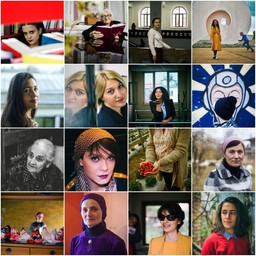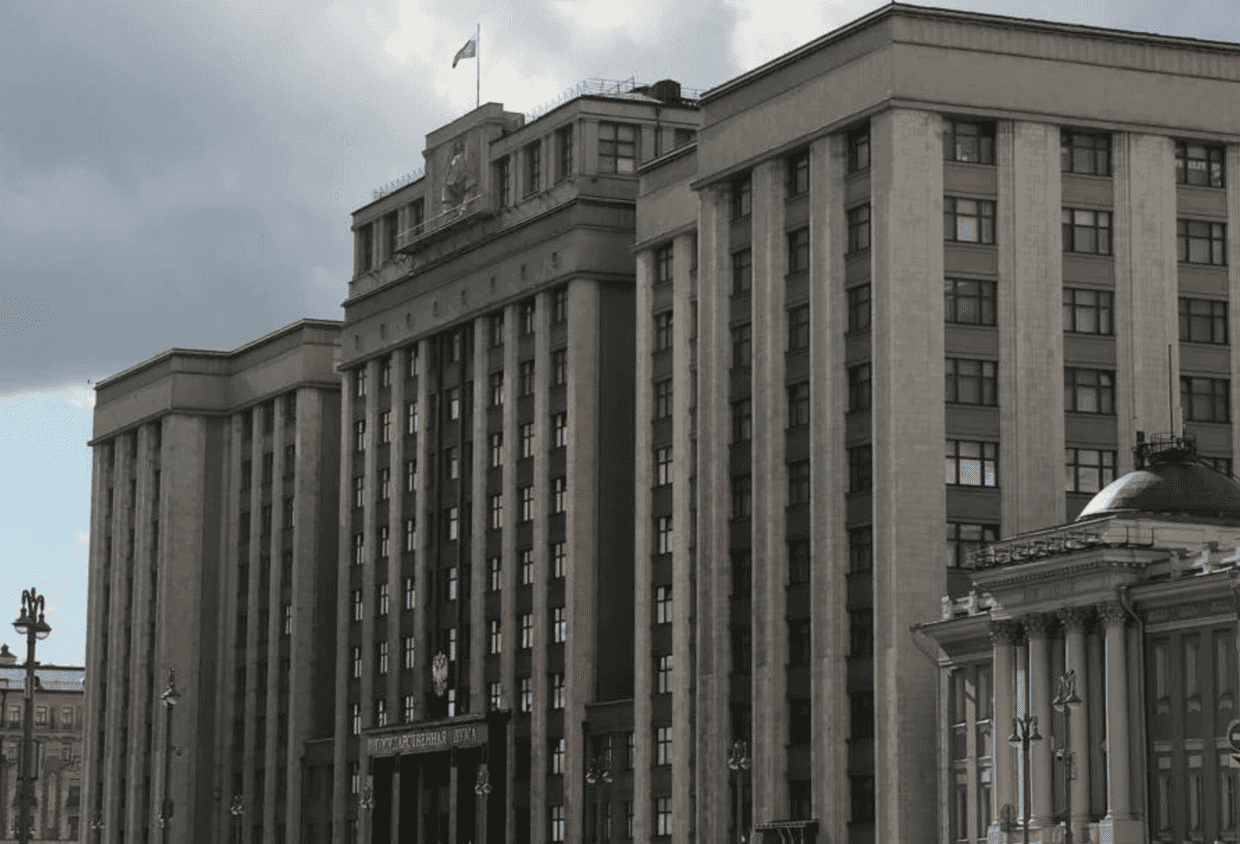
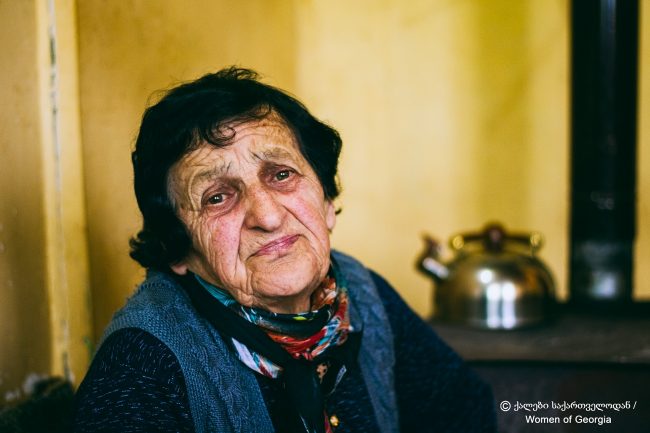
Rusudan Chelidze, 80, Zemo Bakhvi, Guria
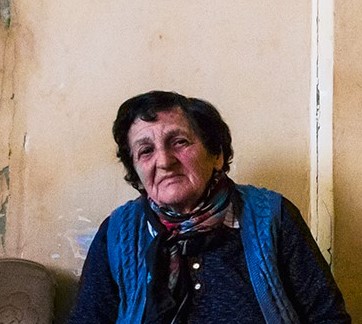 ‘You cannot really call what we went through back then childhood. There were only two of us. We had no one else out there in the whole world.’
‘You cannot really call what we went through back then childhood. There were only two of us. We had no one else out there in the whole world.’
‘I would sit down under the tree and cry because I didn’t have a mother’
‘Both of my parents were victims of the political repressions [1937–1938]. They arrested my mother too, and soon they exiled my father. This is how it worked back then — they would uproot the entire family, together. What they had against my father was that his brother was a refugee in France. My uncle was notified in advance that he was on a blacklist, and that he could have been arrested. So he escaped. He was writing to us that he escaped through Turkey. He had friends among the government of the first republic, who helped him to reach France. He died there, and is buried Leuville cemetery.’
‘They reported to my father that his brother was in France, that he couldn’t be trusted, and that he wasn’t fit for the Communist Party. My father was a wealthy man, and always helped people. He and several other men from the village would distribute seed corns for peasants. He was a charitable man, and probably this was a main reason why they exiled him. He couldn’t even reach the destination. His heart failed and he died on the road. He is buried in Ufa.’
‘My mother worked as a secretary at a trading centre. They made up some stories on her after my father’s exile and then arrested her as well. She returned two years after imprisonment with a bone disease. She died soon, from hardship. I lived with a relative at that time. Then, they brought me to the village of Bakhvi. I was very little, and couldn’t feel much, but I used to harm my own body frequently because I was nervous all the time. Then, I would sit down under the tree, and cry because I didn’t have a mother.’
‘I don’t even want to remember’
‘These events were happening in 1937–1938. Me and my sister were very young. Our grandmother, who lived with us back then, had a heart-attack after all these events and she died too. The two of us, two minors, we stayed orphaned. My sister grew up at the house of one of our neighbours. I went with our far relatives in other village. Of course I am thankful to those people, but it was a high price to pay — it was a heavy burden to carry, we’d work the entire day and sometimes I’d get slapped upside the head. There was such inhumane conditions, I don’t even want to remember.’
‘The village where I lived had only elementary school. When I graduated, I continued to study at school in the village of Bakhvi. My sister was also studying here. When we saw each other we decided to move in together, by ourselves. I ran away from my relatives, my sister left the neighbours. We came back to our parents’ house. It was rented out to various people. It was robbed, a lot of rubbish was lying around, it was almost ruined. We tried to collect stuff. Some people brought us brooms, buckets. We cleaned it up. I was 13 and my sister was 14 when we moved in alone.’
‘We had a big garden. We had a lot of grapes, fruits, nuts. We used to sell all of it. The village head was a good person, and decided to open a kindergarten in our house and pay rent for it. The kindergarten was closed in winter, because there was no tea picking in winter. However, they would leave the furniture in one of our rooms and pay rent to us in winter too. This allowed us to have a little money for food. Our parents’ house eventually collapsed. The house I live now was built by my husband later, in the same yard. We changed the location slightly.’
‘People from politically repressed families could only get a “black job”’
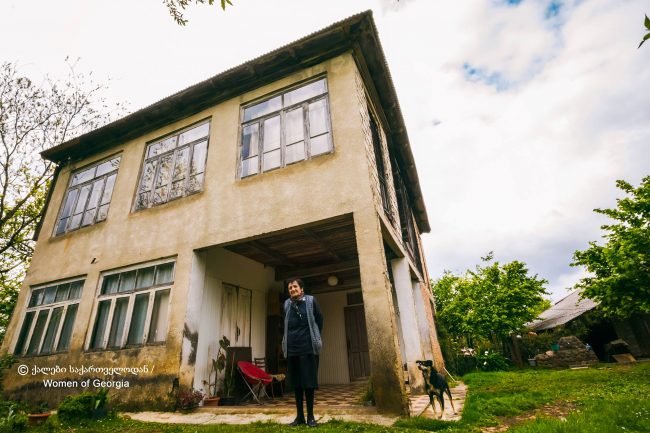
‘We were completely alone. Our door was always open, but we weren’t afraid of anything. No one was scared us in the village. On the contrary, everyone helped us. This village helped us to survive. This is how we, two little girls, grew up together by the support of the village and each other. We graduated from the secondary school. My sister went to the university, to the philology faculty and got a job in that field. I couldn’t continue studying, because my sister, as a student, needed money in Tbilisi. That’s why I started working. I was helping her as much as I could. Later I graduated from a one-year clerical course in Ozurgeti.’
‘I faced some challenges finding a job. At first, my neighbour offered me a part-time job as a typist at a collective farm, however the chairperson hesitated to hire me. After graduating the course, I quickly found a job, but there were still some challenges, because I was a child of a politically repressed family. In the end, I was formally hired as a cleaner. A person from politically repressed families could only get a “black job”. Informally, I worked as a cleric for many years in two places — at school and and at the Davit Andghuladze musical school.’
‘No one will make me young again’
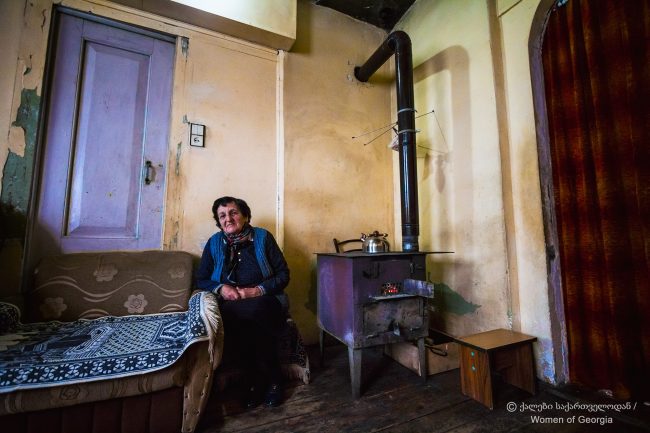
‘I am not really crying over the Soviet Union, because Russian was always an abuser. However I miss the living conditions. I feel more repressed now, when I am in my old age. Back then, everyone felt sorry for us, but now they just constantly remind me that I’m 80. For example, I go to the bank, they will ask for my age, and it will come out that there are restrictions. I cannot take 2–3 month credits. This happens everywhere, every day — a reminder that I am 80 and I am useless. Even the government cannot care less to increase the pension by at least ₾10 ($4) so that we could buy medicine. The prices for medicines are insane; isn’t this a repression? Luckily, I have a child and a very good son-in-law, who works, and they will never abandon me, leave me hungry. I would never have reached this age if I hadn’t had them. Then, what about the others? Those who don’t have children, what can they do? No one cares about peasants. Peasants would always work and save the country if they have opportunities. However no one will lend me money to own cattle on my one hectare land, to have a farm. I am capable of work, and I still work in my garden.’
‘I don’t feel government support anywhere. Once, I was told that I could go to this clinic with government insurance. I went there and was told that they don’t have an eye or ear doctor. Old people need these doctors, what else do I need? No one will make me young again. So then I want to the next clinic. They told me that I wasn’t registered there, and so I had to pay money. All right, I would pay whatever they would ask, but then I had to wait in line, bring some documents. Then, I stood in line there for the doctor. I felt upset. It took ages, so I left, I don’t need any doctors anymore. What is this? I am a citizen of Georgia, I live in this region, why shouldn’t I have the right to go to doctor wherever I want. What kind of law is this? Is it the same in every country? Because of these problems, I’ve never even spent a single tetri of my government insurance. They don’t provide what I need.’
This article is a partner post written by Ida Bakhturidze. The original version first appeared on Women of Georgia, on 30 April 2018.
